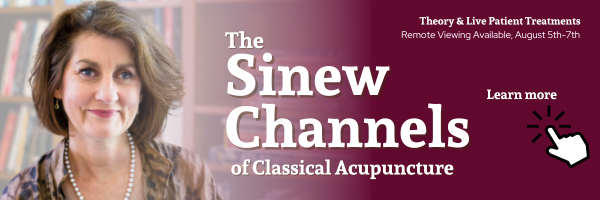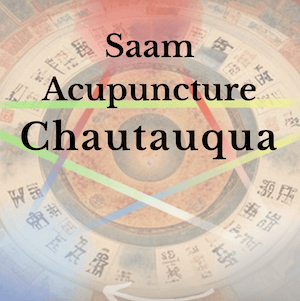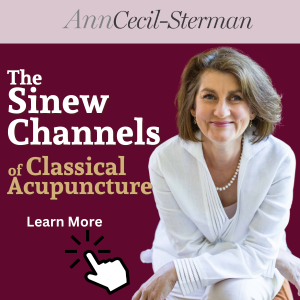In a world where change is the only constant, East Asian medicine offers a way to track change even in the midst of change. Our medicine has a way of adjusting to changing times and has the capacity to bring the essence of ideas and perspectives from the past into the unique moment of the present. History rhymes with itself, and it’s our job to figure out how.
In this conversation with Nigel Dawes, we take a dive into the mutability of Covid and other wind viruses, the long-term sequela of Covid, and how to be inventive with our formulas as we look to adapt to ever unfolding change in our clinical work. We also touch on the impact of political, behavioral, and psychological underpinnings of the pandemic.
Listen into this discussion on the public health and clinical implications of Covid, and how our medicine offers an opportunity to be of service when the world is coming apart.
In This Conversation We Discuss:
- Pandemic politics: Respecting Covid and looking beyond ourselves
- Viral mutability and the long-term sequela of Covid
- Identifying and treating the blood stasis aspect of the virus
- How long should patients be on treatment?
- Closing the Yang Ming
- Nigel Dawes’ clinical observations and treatment approaches for long Covid
- Being attentive and getting inventive with formulas
The clinic is our own living laboratory in which our passion for experimentation, learning and growth is matched only by the compassion, patience and integrity required for its healthy operation
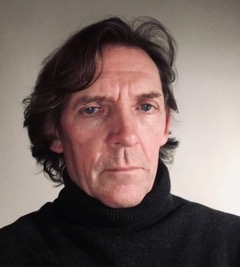 Nigel Dawes
Nigel Dawes
Nigel is an internationally renowned teacher and author who has been practicing East Asian Medicine for almost 40 years. Now based in New York City, he runs a private practice in Acupuncture, Shiatsu and Kampo (Sino-Japanese Herbal Medicine).
Nigel is well-known nationally and internationally for his work on Fukushin – abdominal diagnosis and application in clinical practice – and has recently published a book on the subject: Fukushin and Kampo, Singing Dragon, 2020. He has multiple peer-reviewed journal publications in the field and is author of 3 other books, including a translation of the modern Japanese classic: Kampo: A Clinical Guide to Theory and Practice, Churchill Livingstone, 2010 and a bodywork text: Shiatsu for Beginners: A Step by Step Guide, Prima Lifestyles, 1995.
He is founder and director of the NYC Kampo Institute offering seminars and programs in Traditional Japanese Medicine at the post graduate level, including in acupuncture, Shiatsu and Kampo herbal medicine. He teaches both nationally and internationally and has been on faculty with several accredited colleges of East Asian Medicine in New York, Santa Fe, San Francisco, Montreal, Lisbon, London, Brisbane and Tel Aviv. He lives in Brooklyn, NY.
Subscribe To This Podcast In Your Favourite Player
Share this podcast with your friends!
Shop Talk with Damo Mitchell
The Craft of Acupuncture
In today’s Shop Talk Damo Mitchell explores the Craft of Acupuncture and our relationship with the primary tool of our trade— the needle. Along with a practical understanding of Butcher Ding and the critical importance of knowing how to slide through the sinew channels with an attentive awareness, so we can target our treatment to the primary channels.
You can find out more about Damo's work at Lotus Nei Gong, Xian Tian College, and on Youtube.
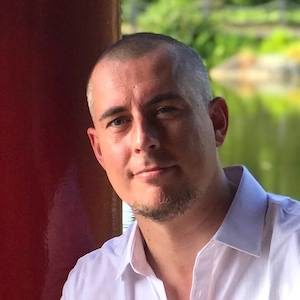 I started out in the martial arts which I began at the age of four; it was through these studies that I first encountered Chinese medicine which I began to learn at age 14 with Tuina.
I started out in the martial arts which I began at the age of four; it was through these studies that I first encountered Chinese medicine which I began to learn at age 14 with Tuina.
Fast forward 28 years or so and I find myself having completed a UK degree in Chinese medicine as well as having been apprenticed to a number of Chinese medical doctors in China and South East Asia. Never really finding myself comfortable in a conventional ‘clinical;’ setting, I always leaned more towards study with esoteric and Daoist practitioners of medicine who worked in smaller communities or out of their own home.
To me, the separation of personal cultivation from Chinese medical study shouldn’t really exist and they both form an equal part of my lifepath.
These days, I am the head of the Xian Tian College of Chinese Medicine as well as the director of the Lotus Nei Gong School of Internal Arts which keeps me more than busy!







